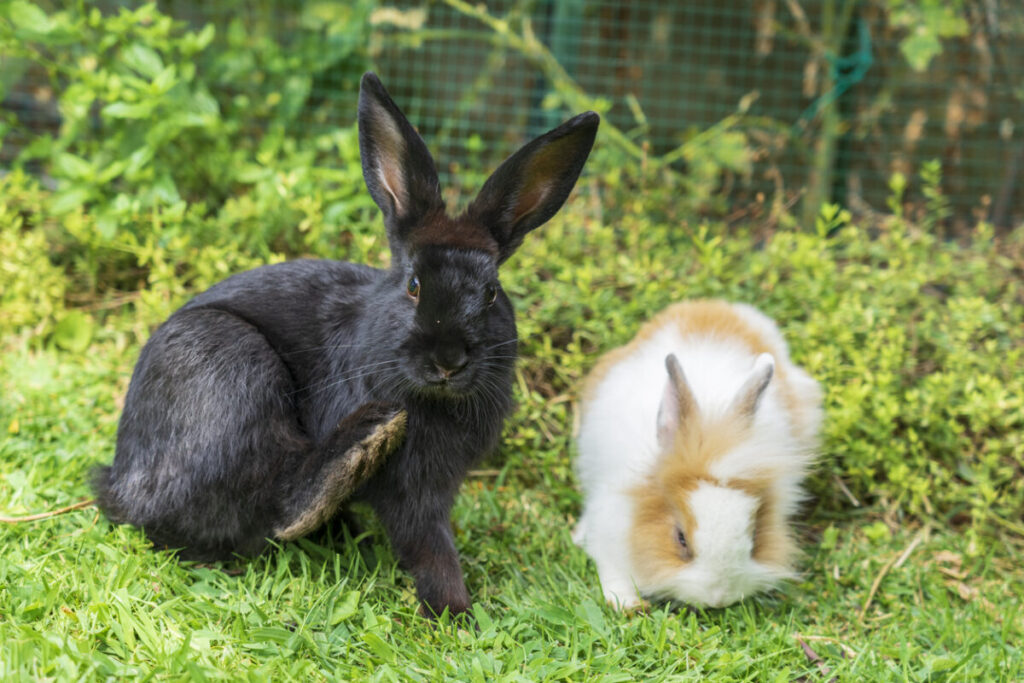One of the most crucial steps in keeping your pets healthy is keeping their vaccinations current. Pet vaccinations protect your beloved pets from severe and potentially life-threatening diseases. Regular vaccinations safeguard your pet’s health and contribute to the well-being of other animals and even humans in your community. This blog will explore why pet parents must keep pet vaccinations current and how your pet’s vaccinations can prevent future health issues, giving you peace of mind and your pet the best chance for a vibrant life.
Understanding Core Vaccines and Non-Core Vaccines
Core Vaccines
Core vaccines are vital for animals based on exposure risk, disease severity, or transmissibility to humans. They protect dogs, cats, and some exotic pets from common diseases in their area. Below are the core vaccines for dogs, cats:
Dogs
- Rabies
- DA2PP:distemper, adenovirus type 2, parvo and parainfluenza]
- Bordetella
Cats
- Rabies
- FVRCP: feline viral rhinotracheitis (FVR), feline calicivirus (C), and feline panleukopenia (P)
Non-core (Elective) Vaccines
Non-core vaccinations (also referred to as lifestyle or elective vaccines) are for individual animals with unique needs. Our Cinema Veterinary Center veterinarians will consider your animal’s risk of various preventable diseases to customize a vaccination program for optimal protection throughout their life. She will ask you questions about your animal’s lifestyle, including any expected travel to other geographical locations or possible contact with other animals or wildlife since these factors can impact your animal’s risk of exposure to certain diseases.
Examples of Non-Core Vaccines for Dogs:
- Bordetella (kennel cough)
- Leptospira
- Canine Influenza (CIV)
Examples of Non-Core Vaccines for Cats:
- Feline leukemia virus (FeLV)
Understanding the Rabies Laws in California
As a responsible pet owner in California, it’s crucial to understand the legal requirements for keeping your furry friends safe from rabies. There is no cure for a pet infected with rabies. It is a deadly disease caused by a virus that attacks the nervous system. Once the outward signs of the disease appear, rabies is nearly always fatal.
Dog Rabies Vaccination Requirements
The State of California requires the following for dogs’ protection against rabies:
- Initial Vaccination: All dogs must get their first rabies vaccination by the time they are four months old.
- Booster Shots: Dogs need a booster shot one year after their initial vaccination. After that, they must receive booster shots every three years.
- Licensing Requirement: Pet owners must vaccinate their dogs against rabies and must show proof of vaccination before obtaining a dog license.
- Veterinary Administration: A licensed veterinarian must administer the rabies vaccine.
- Certificate of Vaccination: After vaccination, the veterinarian will issue a certificate that includes the date of the vaccination, the dog’s description, and the veterinarian’s information.
- Exemptions: In rare cases, dogs may be exempt from vaccination if a licensed veterinarian determines it is medically unnecessary. The owner must provide documentation from the veterinarian to the local health department for approval.
Cat Rabies Vaccination Requirements
Although California State Law does not require rabies vaccination of cats, it is highly recommended. A County of Los Angeles ordinance exists requiring rabies vaccination and licensing of cats. Certain cities uphold this ordinance, requiring cats to be vaccinated for rabies and/or licensed (based on owner address, not address of the veterinary clinic). Information regarding licensing in certain cities can be obtained by calling local shelters or animal control services divisions. You can click on the following lick for a list of cities and their requirements: Cat Rabies Vaccination & Licensing Requirements.
Exotic Pet Vaccinations

Vaccinations for exotic pets are an essential aspect of responsible pet ownership, helping to safeguard these unique animals from various preventable diseases. The vaccination needs of exotic pets can vary widely based on species, age, health status, and geographic location. Cinema Vet’s experienced exotic animal veterinarians are here to ensure exotic pet receive the necessary immunizations to stay healthy and thrive in their environment.
An Important Note
At Cinema Veterinary Centre, we provide vaccination for rabbits against the deadly virus, Rabbit Hemorrhagic Disease (RHD) .If you own one or more rabbits, please see our blog, A Deadly Virus for Rabbits – RHD.
Vaccinations for Young Animals

As discussed in our blog, Vaccinations at Cinema Veterinary Centre, young animals are highly susceptible to infectious diseases because their immune system is not yet fully mature. If they are nursing, they receive protection through antibodies in their mother’s milk, but this protection is short-lasting, and there may be gaps as the milk antibodies decrease and their immune system is still maturing. Therefore, it is critical to start young pets on their vaccinations and keep to their vaccine schedules. Kitten and puppy immunizations typically start between 6-8 weeks of age.
Young puppies are especially vulnerable to canine parvovirus. For more information about Parvo in Puppies, please read our blog: Parvo Awareness:Recognizing the Signs of Parvo in Puppies
The Risks of Skipping Pet Vaccinations: Health, Legal, and Social Risks
Failing to keep your pet’s vaccinations up to date can lead to several serious consequences, including:
- Increased Risk of Disease: Without regular vaccinations, pets are more susceptible to contracting preventable diseases such as rabies, distemper, parvovirus, and feline leukemia. These diseases can be severe and fatal.
- Higher Veterinary Costs: Treating a disease that a vaccine could have prevented often results in higher veterinary bills due to the need for more intensive care and treatment.
- Public Health Risk: Some diseases, like rabies, can be transmitted from pets to humans. Keeping pets vaccinated helps protect public health and prevent outbreaks.
- Legal Consequences: Failure to comply with local and state laws can result in fines, penalties, or even the forced removal of the pet.
Keep Your Pets Protected: Schedule Their Vaccinations Today
In conclusion, maintaining up-to-date vaccinations for your pets is a vital aspect of keeping your pets healthy. It shields them from a host of dangerous diseases, protects the broader community, and complies with legal requirements. You can ensure your furry friends lead healthy and happy lives by staying informed about the core and non-core vaccines specific to your pet’s needs and adhering to the recommended vaccination schedules. Schedule your pet’s vaccination appointment with Cinema Veterinary Center today and give them the best chance for a long, vibrant life. Contact us now to discuss your pet’s personalized vaccination plan and safeguard their health for the future.
Warm regards,
Your Team at
Cinema Veterinary Centre

